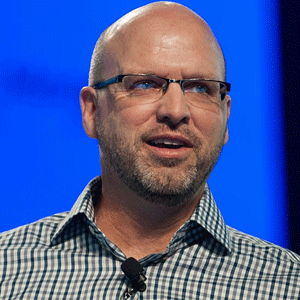THANK YOU FOR SUBSCRIBING
Editor's Pick (1 - 4 of 8)

Our Obsession with Optimizing the Food System, One Startup at a Time
Brett Brohl, Managing Director, Techstars


Brett Brohl, Managing Director, Techstars
But, brands aren’t the only ones benefiting from AI technology. Traive, an innovative lending platform for Brazilian farmers, is using alternative data and AI to generate credit risk assessments for a never-before-tapped market. This unique data-driven underwriting process keeps costs low for farmers and improves returns for lenders.
AI also has huge implications for automating tedious processes in the agriculture and restaurant industries. For example, Big Wheelbarrow, an Austin-based startup, has created an AI-powered sourcing engine that helps large scale produce buyers work with more local growers by automating time-consuming transactional conversations. Similarly, by integrating seamlessly with POS and supplier invoicing systems, tools like Pepr are using AI to automate inventory, accounting, and weekly P&L generation. This type of operational efficiency not only saves small business owners time and increases profits, but it can also significantly reduce wastage.
3. Supply Chain Efficiency
We already produce one and a half times the amount of food needed to feed everyone on the planet; unfortunately, one-third of that global production is lost annually across the supply chain, and inefficient production and transportation are largely to blame. On the production side, farmers need more education on how to protect their crops and livestock from pests and diseases with potential food safety implications. That’s why startups like EIO Diagnostics, a touchless mastitis detection tool for dairy animals, and HeavyConnect, an in-field food safety compliance app, are stepping up to provide this support.
On the transportation side, companies like TradeLanes are helping producers and retailers reduce loss by digitizing and automating the manual processes required to ship ocean containers. This ensures food actually gets to your table rather than spoiling at a port.
4. Upcycling
In the fight against food waste, chefs and CPG startups have made the old adage “reduce, reuse, and recycle” cool again. Originally led by thought leaders like Chef Dan Barber and his WastED pop-up, “upcycled” products have swept the market: ReGrained turns spent grain from breweries into granola bars, Misfit Juicery turns the produce farmers can’t sell into cold-pressed juice, and Renewal Mill turns the byproduct of soymilk production, okara, into a high-protein, gluten-free flour, to name a few. The availability of these products, coupled with large scale consumer education campaigns like NRDC’s Save the Food, are helping turn the tides.
5. Modernization
Despite all these technological advancements it’s important to remember that food system innovation continues to lag behind that other industries in many ways. For the dogged entrepreneur, this presents a huge opportunity to innovate the “unsexy” — or rather, the old school hardware and processes that still govern large swaths of the food production landscape. When it comes to evaporating and pasteurizing beverages, for example, we’re still using imprecise, inefficient conventional steam-powered heating. But, with a little out-of-the-box thinking, startups like Induction Food Systems (IFS) are harnessing in-line heating technology originally created for NASA to unseat steam, increase efficiency, and improve sustainability. These types of solutions may not be as flashy as alternative proteins or machine learning, but we shouldn’t discount the economic value of these dark horses.
So, when you think of “food” and “agriculture," billion dollar exits may not be top of mind. I hope I’ve convinced you that they should be.
It’s incumbent upon on big corporations to realize the power of startups to optimize the global food system and jump on board as partners. Disruption is coming, and the Cargill’s, the Ecolab’s, the General Mills’ of the world have a choice: join the movement and give entrepreneurs a chance or risk getting disrupted one piece at a time.












